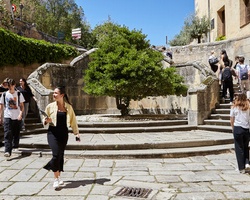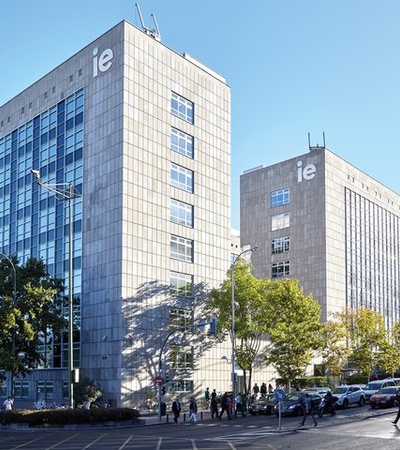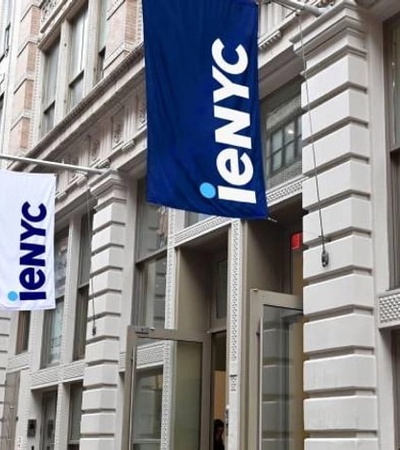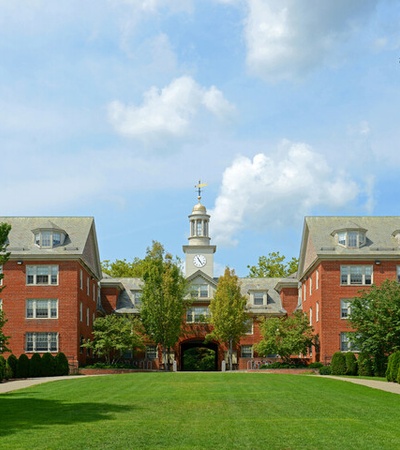Bachelor in Environmental Sciences for Sustainability
Bachelor in Environmental Sciences for Sustainability
Drive sustainable change
- Home
- Studies
- Undergraduate Degrees
- Bachelor In Environmental Sciences For Sustainability
THE BACHELOR IN ENVIRONMENTAL SCIENCES FOR SUSTAINABILITY
THE BACHELOR IN ENVIRONMENTAL SCIENCES FOR SUSTAINABILITY
The Bachelor's degree in Environmental Sciences for Sustainability is a comprehensive undergraduate program, taught entirely in English, designed to equip students with a robust foundation in both the natural and applied sciences. This Bachelor in Environmental Sciences for Sustainability program emphasizes a transdisciplinary approach, blending economic, legal and technological disciplines with a strong focus on developing practical solutions for real-world environmental issues.
Leveraging hands-on, project-based learning, the Bachelor of Sustainability offers participants an in-depth scientific knowledge base, alongside a keen understanding of the current socio-political, regulatory landscapes and the digital tools and technologies at the forefront of environmental innovation. Students are empowered to tackle practical cases head-on, applying their acquired knowledge to confront and resolve environmental challenges directly.
Distinctively, the Bachelor's degree in Environmental Sciences for Sustainability stands out for its scientific methodology applied to critical environmental issues, exploring the implications these challenges have on individuals and society broadly. Through its unique curriculum, the program ensures graduates are not only well-versed in the necessary scientific principles but also in the application of these principles, using technology and related fields to foster sustainable environmental solutions.

WANT TO KNOW MORE?
WHO IS THIS PROGRAM FOR
WHO IS THIS PROGRAM FOR
IS FOR STUDENTS WHO…
Are motivated to address major environmental and global challenges using scientific knowledge and want to generate positive change for society and the environment.
ARE LOOKING FOR…
An innovative, transdisciplinary program using project-based learning, which prepares them to address complex sustainability challenges from a scientific, technological and socio-economic perspective.
TO BECOME...
- Environmental specialist or consultant
- Natural resources manager
- Conservation specialist
- Researcher
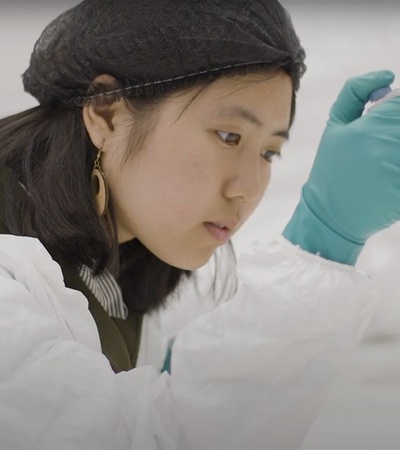
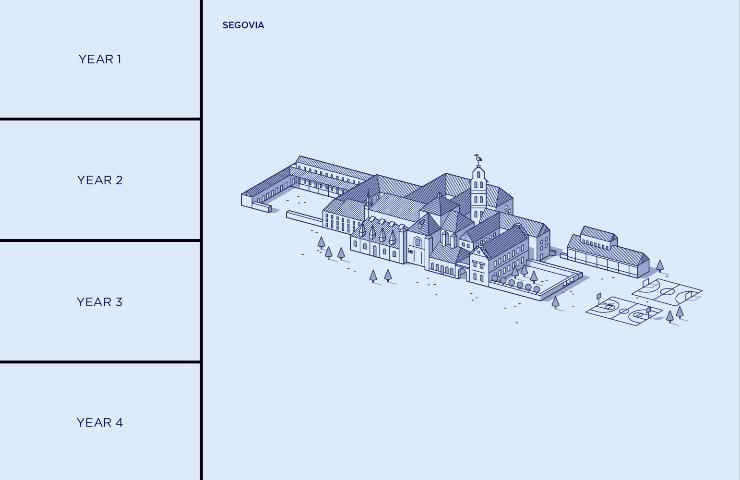
Location
Location
If you choose to study the Bachelor in Environmental Sciences for Sustainability, you will study the four years in Segovia.
WHY SEGOVIA IS THE HEART OF THIS PROGRAM
WHY SEGOVIA IS THE HEART OF THIS PROGRAM
FACT SHEET
PROGRAM
Bachelor in Environmental Sciences for Sustainability
DURATION
4 years
LANGUAGE
English
CENTRES OF STUDY AND NUMBER OF PLACES
Facultad de Ciencias Experimentales (Segovia) – 50 places
CREDITS
Total number of credits: 240 ECTS*
Distribution of credits and subjects**:
Core subjects – 60 ECTS
Mandatory subjects – 132 ECTS
Elective subjects – 36 ECTS
Final Project – 12 ECTS
AREA OF KNOWLEDGE
Environmental Sciences and Ecology
TEACHING METHODOLOGY
Face-to-face
SPANISH MINISTRY’S REGISTRY OF UNIVERSITIES, CENTRES AND DEGREES
ASSURANCE AGENCY
ACSUCYL*** – Buscador Títulos Oficiales
*European Credit Transfer System
**The character of the subjects is defined by the Spanish legislation
***Quality Assurance Agency for the University System in Castilla y León
A SURE PATH TO SUCCESS
A SURE PATH TO SUCCESS
Five reasons to take the Bachelor in Environmental Sciences for Sustainability at IE University:
- 01.
A HIGHLY DEMANDED PROFILE
As environmental challenges intensify, the need for professionals who can drive sustainable transformation is soaring. Governments, businesses, and NGOs urgently seek experts to navigate regulations, design responsible strategies, and lead climate action. According to the Global Green Skills Report, green talent in the workforce has grown by 38.5% over the past five years. Today, 1 in 10 job postings requires at least one green skill, and by 2030, the green economy is expected to generate over 24 million new jobs worldwide. With solid scientific training and cross-sector versatility, our graduates are uniquely positioned to lead this transformation.
- 02.
THE NEXT GENERATION OF GREEN BUSINESS
The green transition isn’t just a challenge, it’s a massive entrepreneurial opportunity. As global markets shift toward greener models, the demand for innovative, impact-driven business solutions is skyrocketing. Those trained in sustainability will be prepared to shape this new economy; not only as employees, but as founders and innovators. From circular economy models to clean tech startups, the green transition offers great opportunities to start impactful companies that help the planet and build long-term value. According to international estimates, the global green economy could generate over €10 trillion in business opportunities by 2050, spanning sectors such as renewable energy, sustainable agriculture, green finance, circular manufacturing, and carbon removal. By 2100, these opportunities could surpass €30 trillion, as economies worldwide increasingly prioritize resilience, regeneration, and net-zero pathways. Sustainability is not just a career path; it’s the foundation of the next great wave of global innovation.
- 03.
A CAREER WITH A PURPOSE
Turn your passion for the planet into meaningful impact. This degree empowers you to tackle climate change, protect biodiversity, and restore vital ecosystems, all while addressing pressing social and economic challenges. You'll gain the scientific knowledge, practical tools, and soft skills needed to lead transformative change and influence decision-making across sectors. Join a new generation of leaders shaping a better, fairer, and more resilient world.
- 04.
MASTER SYSTEMIC THINKING TO TACKLE ENVIRONMENTAL CHALLENGES
Sustainability requires deep understanding and bold thinking. It’s about uncovering root causes and designing lasting solutions. By analyzing scientific data, you’ll learn to understand the complex dynamics behind the human and environment relationship. A systemic approach that empowers you to connect social, economic, and environmental factors, anticipate the ripple effects of decisions, and transform challenges into meaningful opportunities. This mindset is essential for crafting innovative responses that regenerate our planet and support resilient, equitable societies.
- 05.
QUESTION THE WORLD FROM DIFFERENT PERSPECTIVES
The environmental challenges that we currently face require both scientific expertise and an understanding of the social and political issues at hand. Policies, regulatory frameworks, and new business models are all parts of the solution. The Bachelor in Sustainability challenges are complex, and solving them requires thinking beyond silos. This field integrates natural sciences such as biology, chemistry, and geology with economics, data analysis, and environmental policy, giving you a truly interdisciplinary foundation. You'll explore how environmental, social, and economic systems interact, and how to address their interdependencies. Green skills are not limited to one industry; they’re relevant across all sectors. With this perspective, you’ll become a versatile professional ready to drive transformation wherever you go. Sciences for Sustainability meets this demand by training professionals in both environmental sciences and sustainable projects, including the use of cutting-edge digital tools.
BACHELOR IN ENVIRONMENTAL SCIENCES FOR SUSTAINABILITY Pillars
BACHELOR IN ENVIRONMENTAL SCIENCES FOR SUSTAINABILITY Pillars
EXPERIENTIAL LEARNING TO MASTER COMPLEXITY
Understanding sustainability requires more than classroom learning; it demands real-world engagement. That’s why this program is built on experiential learning, where theory meets practice. From semesterly field trips to hands-on sessions in our state-of-the-art labs and close collaboration with eternal stackholders, students gain direct exposure to environmental systems, data collection, and scientific experimentation. You'll also explore complex challenges through immersive tools like multimedia, virtual reality, and educational video games. These diverse learning experiences foster critical thinking, teamwork, and systems-level insight, preparing you to lead and collaborate across disciplines in the face of global environmental complexity.
A STRONG ACADEMIC AND RESEARCH-ORIENTED CURRICULUM
This degree is built around a rigorous, research-oriented curriculum grounded in scientific excellence. From day one, students are immersed in academic inquiry, exploring cutting-edge topics such as climate solutions, the circular economy, clean energy systems, water resource management, and bioprospecting. Through close engagement with ongoing research projects, scientific methodologies, and data analysis, you'll develop the green skills essential to thrive in a rapidly evolving economy. This strong foundation in both theoretical frameworks and applied science equips you to design evidence-based, sustainable solutions across academia, industry, government, and international public agencies.
A SYSTEMIC APPROACH TO DEVELOP TRANSDISCIPLINARY SKILLS
Understanding today’s environmental challenges requires seeing the bigger picture. This program teaches students to think systemically; connecting environmental, social, and economic dynamics to uncover root causes, anticipate consequences and provide socioeconomicaly viable solutions to the major environmental, social and economic problems faced by the 21st Centrury societies. You'll explore the complex interplay between humans and nature, learning to model interdependencies and design innovative responses. This transdisciplinary mindset equips you to navigate real-world complexity, transform challenges into opportunities, and make informed decisions that drive long-term, sustainable impact across sectors.
MEANINGFUL PARTNERSHIPS AND INDUSTRY CONNECTIONS
Collaboration is key to real-world impact. This program is deeply connected to leading research institutions like CSIC and CIEMAT, public initiatives like Madrid Nuevo Norte, and top companies such as EY, PwC, Deloitte, Acciona, and Iberdrola, some of which have already hosted Bachelor in Environmental Science for Sustainability students for internships. These partnerships offer hands-on experience, professional mentorship, and real-world exposure, fostering an entrepreneurial mindset and preparing students to co-create impactful solutions in the sustainability world.
Undergraduate + Master's Degree Combinations
Undergraduate + Master's Degree Combinations
As an IE University student, you have access to a wide range of opportunities to continue your academic journey and strengthen your global career. Whether you pursue a master’s at IE University or at IENYC in New York, each option is designed to accelerate your personal and professional growth and open doors across industries.
STUDENT STORIES
STUDENT STORIES
At IE University, more than 75% of our student body comes from outside Spain, representing an average of 130 nationalities on campus each year. We take great pride in these numbers—and in the individuals behind them.
Our students are natural go-getters with a global outlook and a dream of a better future. Regardless of their degrees or passions, they strive every day to unleash their innovative potential and reach their goals. Driving this shared vision are people from a variety of cultures, backgrounds and life experiences. They are both united and entirely unique. These are our students. Discover their stories.
LEARN MORE ABOUT THE BACHELOR IN ENVIRONMENTAL SCIENCES FOR SUSTAINABILITY
LEARN MORE ABOUT THE BACHELOR IN ENVIRONMENTAL SCIENCES FOR SUSTAINABILITY
Juan Silva, Academic Director of this program at IE University, explains in-depth the Bachelor in Environmental Sciences for Sustainability.
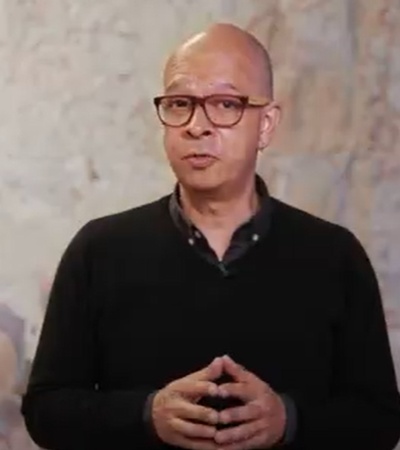
Faculty Stories
Faculty Stories
Our 500-strong faculty guides students to unleash their potential day in, day out. Their influence across all five Schools can’t be overstated, inspiring young, energetic minds as they define their personal and professional trajectories.
But what kind of person does it take to create such impact? The individuals that make up the IE University faculty are special. Coming from diverse, global backgrounds, they each bring distinct perspectives and innovative ideas that embody what makes IE University stand out. Their stories are personal and unique—but don’t take our word for it. Read their stories to see for yourself.
FACULTY RESEARCH
FACULTY RESEARCH
What sets our faculty apart is their deep integration into the fields they teach. Not only do they work within the industries they are teaching, bringing firsthand knowledge and insights to the classroom, but they are also involved in cutting-edge research that pushes the boundaries of their disciplines.
Our professors ensure they stay at the forefront of the latest developments in science and technology by actively contributing to research. They bring these insights directly into the learning experience, equipping students with the tools, knowledge, and mindset needed to succeed in today’s evolving tech and science landscape.
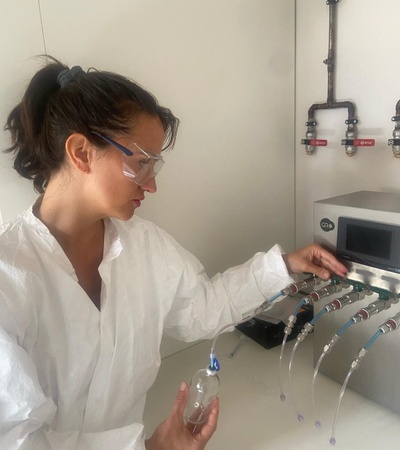
WHAT DO EXPERTS SAY?
WHAT DO EXPERTS SAY?
UNSURE IF THIS IS THE RIGHT PROGRAM TO HELP YOU ON YOUR PROFESSIONAL JOURNEY?
UNSURE IF THIS IS THE RIGHT PROGRAM TO HELP YOU ON YOUR PROFESSIONAL JOURNEY?
Discover the Bachelor in Environmental Sciences for Sustainability related programs:
FREQUENTLY ASKED QUESTIONS
FREQUENTLY ASKED QUESTIONS
What is Environmental Science for sustainability?
The Bachelor in Environmental Sciences for Sustainability is a transdisciplinary program that combines the study of basic and applied sciences with the skills required to develop and implement sustainable environmental solutions.
Is environmental sustainability a good major?
The Bachelor in Environmental Sciences for Sustainability at IE University has been designed by our expert faculty and blends an in-depth knowledge of the basic and environmental sciences with technology, economy and law.
Is sustainability a science major?
The Bachelor in Environmental Sciences for Sustainaibility is part of the School of Science and Technology at IE University.
Is a Bachelor's in Environmental Science worth it?
With a Bachelor in Environmental Science for Sustainibility, you will be equipped with the knowledge and skills needed to address the environmental challenges of our time. This program prepares you to enter the job market immediately, whether in an academic, business, governmental, non-governmental or research setting. Your versatile profile will demonstrate your ability to address complexity, reflect and act accordingly.
What do you study for sustainability?
Studying a Bachelor in Environmental Sciences for Sustainability means you will address major environmental and global challenges using scientific knowledge and enerate positive change for society and the environment.


